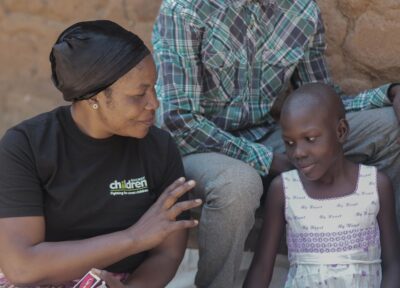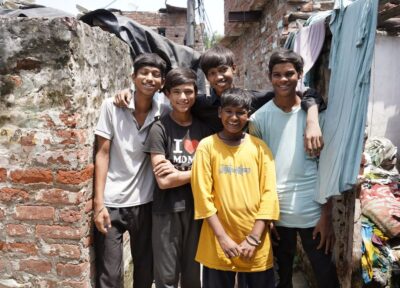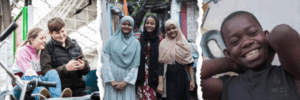
We're tackling: violence and abuse
Learn about the different types of abuse, how Railway Children supports victims and how to spot the signs.
What is child abuse?
Child abuse is any form of mistreatment, violence and harmful practice against a person under the age of 18.
Vulnerable children like those who are street-connected are highly at risk of experiencing harm at home, on the streets and in transport spaces.
Types of abuse
We support many young people who have survived different types of abuse, including:
Physical abuse
- Hurting a child physically on purpose, such as through hitting, punching, kicking, throwing or poisoning, is known as physical abuse.
Emotional abuse
- Mistreating a child emotionally for a continual period is called emotional or psychological abuse.
- It often involves intentionally humiliating, scaring, ignoring or isolating a child.
- Over the long term, this can lead to mental health issues, behavioural problems and impact their emotional development.
Neglect
- Neglect is the ongoing failure to meet a child’s basic needs, including food, proper clothing, shelter, supervision, emotional care and health care. Keeping children out of education is also neglect.
- It can lead to mental health problems and difficulty forming healthy relationships in later life.
Sexual abuse
- Contact sexual abuse is when an abuser touches a child sexually or forces them to take part in sexual activities.
- Non-contact sexual abuse occurs without direct touching or online – this could be an abuser exposing themselves to them or distributing child abuse images or videos.
- Abusers often exploit the fact that children might not be aware that they’re being sexually exploited, to shame them into silence.
Grooming
- A child is groomed when someone builds a relationship and creates trust with them in order to exploit and abuse
- This could be through a romantic relationship, giving them attention or buying them gifts.
- Perpetrators often use blackmail and manipulation to make the child feel guilty and to control them.
Bullying & cyberbullying
- Bullying is intentionally hurting someone emotionally or physically. It can happen at home, at school or online.
- Online bullying, known as cyberbullying, happens through phones, social networks and gaming – such as by sending threats or abusive text messages or setting up hate groups on social media.
The long-term effects of abuse
Victims of abuse often suffer long-term consequences.
We don’t know how many people experience abuse. Because of the guilt and shame, some people never open up to anyone what they’ve gone through.
Leaving the trauma unaddressed can lead to struggles with self-esteem and make it hard to form healthy relationships, even into adulthood. Experiencing abuse as a child also increases the chance of going on to abuse others, which perpetuates the cycle.
That’s why properly processing the trauma and receiving specialised support is key to moving forward and building a healthy life.
How Railway Children supports abuse victims
Children who experience domestic violence, abuse or bullying, are at high risk of family separation.
In India, Tanzania and the UK, Railway Children support many children who have run away from home using the transport networks, often because they didn’t feel safe or cared for at home or school.
After we’ve identified a child who has been separated, we assess their situation to determine what support they need.
Through one-to-one and family sessions, we support each person according to what they’ve gone through, helping them process any trauma and begin to heal.
We also advise families on how to create a supportive environment for their children, so they can feel empowered to open up to their parents and/or guardians about anything they’re going through.
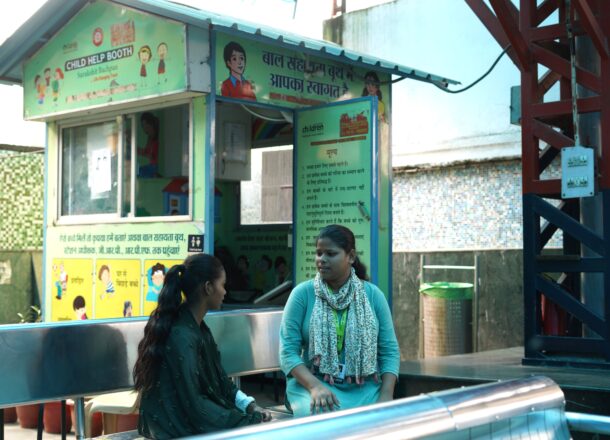
Shaping safer, more loving families
In many cases, unhealthy parenting styles stem from harmful societal norms and generational trauma.
To combat this, we conduct support sessions with carers to address anything that may have contributed to the young person leaving home.
This can involve education around gentler parenting styles and the importance of proper nutrition, helping parents process their own traumas or practicing anger management skills.
Thanks to this therapeutic approach, we can tackle the root of the separation and ensure the young person has a safe, nurturing environment to return to.
Read more about our family reintegration work
Through our ACT parenting programme, parents in Tanzania are educated around compassionate and healthier ways to discipline their children.
And at Child Activity Centres in India, parents of street-connected children have the opportunity to meet regularly and learn about child rights and positive parenting skills, such as the importance of keeping their kids in education and providing proper nutrition.
Making transport hubs hostile to abuse
While train stations and bus terminals can offer temporary shelter and safety for vulnerable young people, they’re also public places that anyone can access.
Hidden dark corners, poor lighting and busy crowds can make these spaces ideal targets for perpetrators looking to exploit vulnerable young people.
We collaborate with the transport industry and station communities to make transport hubs hostile to abuse and ensure safety standards are optimised to protect those at risk. Known as contextual safeguarding, this approach focuses on addressing safeguarding risks in a particular environment.
Our e-learning and face-to-face safeguarding training for professionals gives rail industry and community colleagues in the UK the tools to respond to safeguarding concerns in stations and on the network. Participants learn to identify the signs of County Lines exploitation, adverse childhood experiences, unwanted sexual behaviour and domestic abuse.
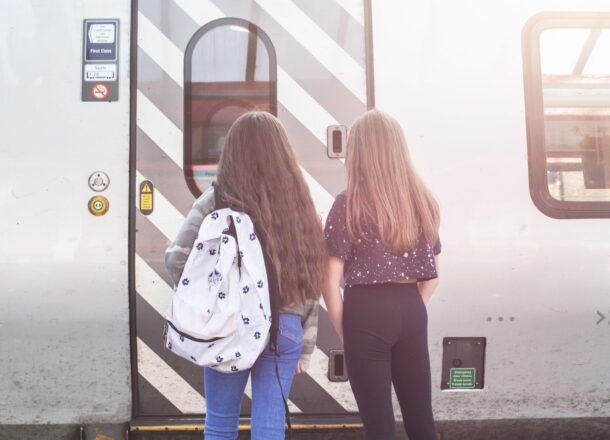
Spot the signs of child abuse
- Does the child regularly have cuts, bruises or other marks?
- Have you noticed any sudden changes in their mood or character?
- Do they seem secretive?
- Has there been a change in their eating and sleeping habits?
- Are they avoiding going to school?
- Do they seem upset or distant after using the internet or texting?
- Do they have difficulty making or maintaining relationships?
What to do if a child reveals abuse
If a child reveals abuse, it’s important to react carefully and listen to them attentively. If required, take them to a safe space where they feel comfortable to talk. If the child is at immediate risk, call 999.
Reassure them that you’ve done the right things by telling you and explain to them why it’s important for you to report it to someone who can help.
Report this to child services or the relevant authorities as soon as possible.
Support & advice for young people
If you, as a young person, has experienced something that doesn’t feel right, but you’re not sure what to do, you can contact Childline at 0800 111.
It’s free and you’ll receive support and advice to help you through your situation.
